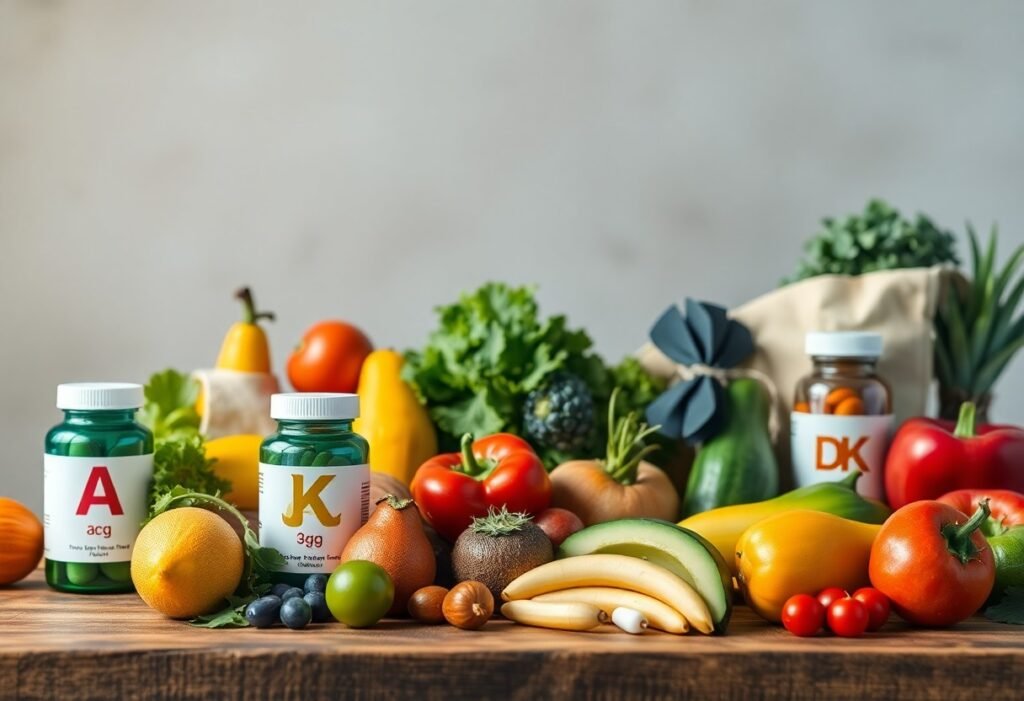
Your health and wellness depend significantly on the vitamins you consume. These organic compounds play vital roles in your body, helping it to function properly. To maintain an optimal level of health, it’s important for you to be aware of the most important vitamins that can enhance your wellbeing. Here are the top 10 important vitamins that you should consider incorporating into your daily regimen.
1. Vitamin A – This vitamin is fundamental for maintaining healthy eyesight, skin, and immune function. You can find Vitamin A in foods like carrots, sweet potatoes, and spinach. Including these foods in your diet will help ensure you’re getting the right amount of this important nutrient.
2. Vitamin B12 – If you want to keep your energy levels up, Vitamin B12 is important. It aids in the production of red blood cells and supports nerve function. Animal products such as meat, fish, eggs, and dairy are great sources of B12. If you’re vegetarian or vegan, consider fortified foods or supplements.
3. Vitamin C – Known for its immune-boosting properties, Vitamin C is vital for your skin and connective tissues. Citrus fruits, strawberries, bell peppers, and broccoli are all rich in Vitamin C. Regular intake can help protect your body from illness and aid in healing.
4. Vitamin D – Often called the “sunshine vitamin,” Vitamin D is important for bone health and immune function. You may obtain Vitamin D from sunlight, but also consider fortified foods or supplements, especially in winter months when sunlight is limited. Fatty fish and egg yolks are also good natural sources.
5. Vitamin E – Acting as an antioxidant, Vitamin E helps protect your cells from damage. It also plays a role in immune function. Nuts, seeds, and green leafy vegetables are excellent sources of Vitamin E. Integrating these into your meals can bolster your body’s defenses.
6. Vitamin K – This vitamin is important for blood clotting and bone health. Dark leafy greens like kale and spinach are known for their high Vitamin K content. Be sure to include these in your diet if you want to support your cardiovascular health and ensure proper clotting.
7. Vitamin B6 – Known to support brain health, Vitamin B6 plays a role in mood regulation and the formation of neurotransmitters. Foods like poultry, fish, bananas, and potatoes are rich in this vitamin, helping you maintain a balanced mood and cognitive function.
8. Vitamin B1 (Thiamine) – Thiamine is important for energy metabolism, helping convert carbohydrates into energy. You can get it from whole grains, nuts, and meat. By ensuring an adequate intake of Vitamin B1, you can maintain your energy levels throughout the day.
9. Vitamin B2 (Riboflavin) – This vitamin is key to managing your energy production and helps in the maintenance of healthy skin and eyes. You can find it in dairy products, eggs, and leafy green vegetables, making it easy to incorporate into your diet.
10. Folic Acid (Vitamin B9) – Especially important for pregnant women, folic acid plays a significant role in cell division and helps prevent neural tube defects. Beans, lentils, and fortified grains are excellent sources of this vitamin, ensuring that you support both your health and the health of future generations.
Incorporating a variety of these important vitamins through a balanced diet can lead you toward optimal health and wellness. Taking the time to focus on your vitamin intake is a step you can take to improve your overall quality of life.
